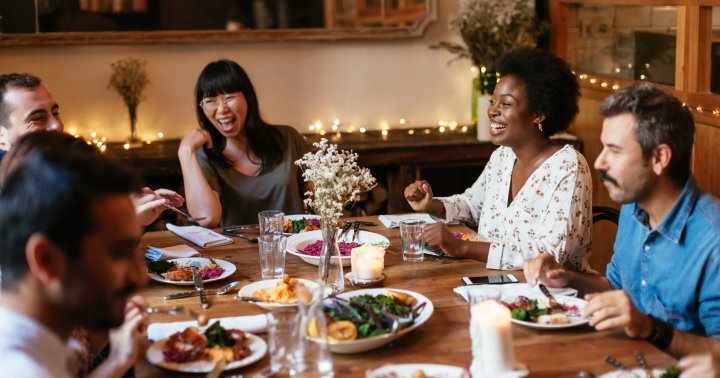It might come as no shock that the best way an individual interacts with social media can reveal so much about them. However new analysis—by the Heart for Info and Neural Networks and the Nationwide Institute of Info and Communications Expertise—finds social media may very well predict persona traits, attributes, and psychological well being greater than consultants as soon as thought.
Social media because it pertains to persona.
For the research, researchers Kazuma Mori and Masahiko Haruno had machine studying fashions predict and discover connections between persona traits and social media use, primarily based on issues like phrase alternative, time, and present statistics.
They particularly regarded for Large 5 persona scores (extroversion, neuroticism, agreeableness, conscientiousness, and openness), intelligence scores, life satisfaction (like happiness and self‐esteem), and consumption ranges of alcohol and cigarettes.
The research gathered social media knowledge from 156 males and 83 girls, with a mean age of about 22 years outdated. The contributors additionally took a wide range of persona assessments that measure traits and attributes, together with the Happiness Scale, the Machiavellianism Scale, the Obsessive‐Compulsive Stock, the Autism-Spectrum Quotient, the Rosenberg Self-Esteem Scale, and lots of, many extra.
What they discovered.
Based mostly on the findings, the researchers say there are 4 classes of social media data, which might predict 23 completely different “subscales” of persona. Specifically, language and “community options” (issues like variety of tweets, variety of followers, variety of replies, mentions, and so on.) seemed to be the strongest predictors.
“We validated our speculation that the community and phrase statistics data, respectively, exhibit distinctive strengths for the prediction of interpersonal traits similar to autism, and psychological well being traits similar to schizophrenia and nervousness,” the research authors observe of their analysis. “We additionally discovered that intelligence is predicted by all 4 forms of social community service data.”
As an example, “our evaluation confirmed that folks with excessive verbal intelligence tended to tweet continuously and have been extra favorited,” the authors write. “These folks additionally confirmed secure timing of their replies.”
Community data additionally predicted issues like extroversion properly, whereas timing was linked with issues like intelligence and pro- versus anti-social habits.
As for psychological well being predictors, “Emotional phrases had sturdy predictive energy, with using extra destructive phrases and fewer optimistic phrases predicting delusion, despair, and nervousness,” they write.
The takeaway.
Total, the areas that noticed probably the most predictability primarily based on social media have been psychological well being, empathizer‐systemizer (whether or not you are extra emotions- or rule-based), Large 5 persona, intelligence, life satisfaction, and consuming or smoking.
And till now, consultants actually did not know simply how a lot of persona may very well be extracted and understood from tweets and social media posts alone. “Every data sort has distinctive predictive strengths for particular traits and attributes,” Mori and Haruno say, “suggesting that persona prediction from social networking providers is a robust device for each persona psychology and knowledge expertise.”
Transferring ahead, the researchers hope to combine useful purposes of their findings, in a manner during which persona identification could be “utilized to real-world issues.”
Need your ardour for wellness to vary the world? Turn out to be A Practical Vitamin Coach! Enroll as we speak to affix our upcoming reside workplace hours.

















